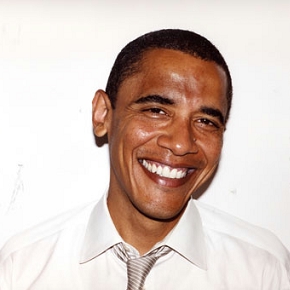 |
||
|
U.S.-Russian reset: a house built on sand RIA Novosti, Dmitry Babich, PUBLISHED March 06, 2011 The second anniversary of the reset is upon us, and yet experts are still disputing the very meaning of the concept. There are two opposing camps among American studies experts in Russia. One camp, with roots going back to the Soviet era, believes that the Democrats are more favorably disposed toward Russia than the Republicans because the Democrats are ostensibly more progressive and tolerant of other cultures, including our own. The other camp, made up of post-Soviet pragmatists, thinks that Russia is better off dealing with the Republicans, who are more overtly hostile to Russia. They don't have to prove their patriotism to anyone, and this is why it is easier to reach agreements with them. Think Richard Nixon. Barack Obama's decision to pursue a reset with Russia in 2009 seemed to support the argument of the first camp. Obama, however, was guided by purely pragmatic considerations, which we usually ascribe to his Republican opponents. Ideologues vs. pragmatists Obama has not "fallen" for Russia. He appears to have much less sympathy for our country than Bill Clinton, who is a genuine fan of the Russian style, at least when it comes to culture. He chose not to see Russia as a threat, and in this he differs from George W. Bush. That being said, Obama was careful not to discount Russia, despite advice to the contrary. He chose to start a dialogue with Russia, and what's more, he actually showed consideration for Moscow's interests, unlike Clinton, who merely explained to President Boris Yeltsin the benefits of this or that policy (NATO expansion, the bombing of Yugoslavia) without seriously considering Russia's objections. In brief, Obama has treated us as adults. But this does not mean that our relations are now on solid ground. In reality, both camps in this debate are guilty of simplifying matters when they claim that there is a clear party divide. The fact is there are friends and foes of Russia in both the Democratic and Republican parties. Therefore, I don't ascribe the same significance to Obama's party affiliation as some of my colleagues. U.S. foreign policy is shaped both by practical interests and ideology. These two forces are often at odds, but the push and pull between them determines the general trajectory of America's policy toward Russia at any given time. When pragmatism prevails, the trajectory is favorable or at least acceptable to Russia. When ideology takes the upper hand, dialogue is put on hold and tensions reemerge. But since there are pragmatists and ideologues in any U.S. administration, party affiliation is not as important an indicator as it may seem. Nixon was a pragmatist first and a Republican second. My point is that there are no material reasons why Russia and the United States should be at odds. Our economies do not compete against each other. Gone are the days when the Soviet Union tried to turn Cuba into an unsinkable anti-American aircraft carrier. Russia's nuclear forces do not pose a threat to the United States. On the contrary, our nuclear capabilities deflect attention from the United States' clear military supremacy over the rest of the world. So, when both sides are focused on getting things done (i.e. when pragmatism is ascendant) everything becomes simple, from cooperation on Afghanistan to the ratification of the New START treaty. But there are grounds for an ideological conflict. The root of the problem lies in the ideology that guides U.S. foreign policy (Russia still lacks one). This ideology, born of confrontation with the totalitarian regimes in Germany and the USSR, puts democracy above all else. This has become a kind of religion for the U.S. and the EU. In reality, there are poor and unstable democracies that pose a threat to neighboring countries (for example, Hamas in Gaza, and unstable Lebanon), and there are authoritarian regimes that are prosperous and pose no danger to the rest of the world. Unfortunately, hostility toward Russia, whose traditions are seen as antithetical to democracy, is deeply ingrained in the West's outmoded ideology. Obama's lip service This ideology has already cost the United States dearly, but Obama continues to pay lip service to it, expressing pragmatic goals in the language of human rights, for lack of new ideas. It is absurd to suddenly accuse Muammar Gaddafi of violating human rights when he has been in power for 42 years. But what else is there to talk about? Should we talk about how the United States, NATO and the EU failed to notice the wave of food riots sweeping the Middle East because they were distracted by efforts to curb Russia's imaginary expansionism? Or should Washington admit that all its fears about Russia's threat to energy security in Europe have turned out to be totally wrong now that the flow of gas and oil is being cut off in the south rather than the east? Whether Russia and the United States reach a consensus on Libya will depend on which interpretation of the events in Libya prevails. It would be great if Libya was seen pragmatically, as a challenge to Europe and the rest of the world and as a looming humanitarian disaster that the EU, United States and Russia must fight together. But what if the ideological vision prevails and the West sees the events in the Middle East as a victory for democracy and a prelude to a "color revolution" in Russia? This would only serve to create another unnecessary source of conflict. Some may claim that Americans are essentially a pragmatic people. Unfortunately, this is not the case. Many of the conflicts in the history of Russian-U.S. relations, including in recent years, have been rooted in ideology. Washington has seriously debated whether Gazprom would impose an energy embargo on Europe, or whether Russia would attack the Crimea after the short war with Georgia in 2008, to name just a few examples. The United States and Russia still must forge a consensus on Libya and build a solid ideological foundation for the reset, which for the time being largely rests on the personal initiative of the two countries' leaders. Other news: Russia ready to finance Egypt first nuclear plant Russia confirmed its participation in a tender to build Egypt's first nuclear power plant and said it was willing to help finance the project. ARMZ acquires Australian uranium producer in $1.2 bln deal ARMZ will pay eight Australian dollars per share, which represents a 15.5 percent premium on the average market price for 20 trading days. Russia to start building Turkish NPP in 2013 Russia will start building Turkey's first NPP estimated at $20 billion in 2013, Russian ambassador to Ankara Vladimir Ivanovsky said. |
Hero of the day 
Obama nuclear summit: A minor success Further proof of this fact was provided by Obama Nuclear Security Summit held in Washington on April 12-13. However, this goal is unlikely to be achieved in four years. INTERVIEW
Christophe Behar OPINION
Vladimir Rychin |

